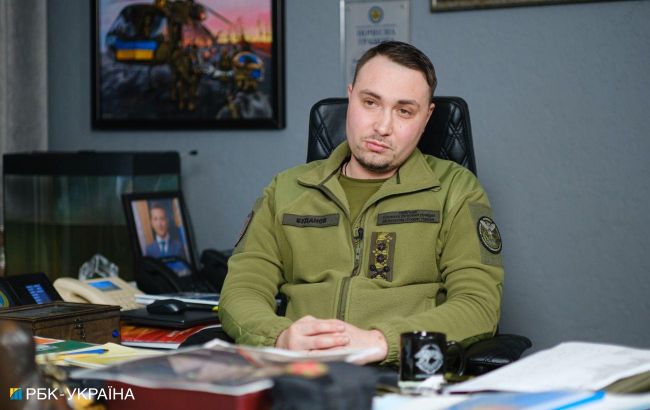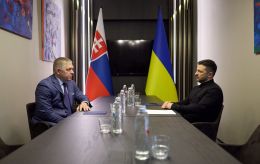Putin's disappearing won't change anything, believes Ukraine's spy chief
 Chief of Ukraine's Defense Intelligence Kyrylo Budanov (Vitalii Nosach, RBC-Ukraine)
Chief of Ukraine's Defense Intelligence Kyrylo Budanov (Vitalii Nosach, RBC-Ukraine)
Disappearing of Vladimir Putin is unlikely to change the situation. Russian society has already become a victim of propaganda and harbors hatred towards Ukraine and the West, believes the chief of Ukraine's Defense Intelligence Kyrylo Budanov.
"Nothing will change swiftly and definitively, I can tell you that right away. Their attitude towards the world, and their worldview cannot change abruptly with sudden changes in the Russian Federation. They have truly become victims of their own propaganda. It has happened, they admit it, let's put it that way," he said.
According to him, Russian society is pumped with hatred towards the collective West and Ukraine. "Even if someone appears now and says, 'Let's stop!' even if everything stops - this hatred will still significantly influence decision-making for many years because all decisions will be made from the perspective that they are enemies," added the head of the DI.
Budanov suggested imagining a situation when everything stops and Russia apologizes. "Who will believe Russia in a year? These are irreversible processes that have already taken place in society. It takes years and work to do," he said.
Budanov recalled the situation after World War II. "Now, I think few people see Germans as enemies. But time has passed, and everything has become normal. But in the 1950s, it was hard to find a person who would see the then FRG as friends. So, everything changes with the years. And these are not easy processes," he concluded.
Russians' attitude toward the war
According to the Levada Center, the majority of Russians support the war against Ukraine. In January 2024, only 16% of respondents were against, while 8% were undecided.
A third of Russians believe that people like them bear moral responsibility for the deaths of civilians and destruction in Ukraine, while 62% of those surveyed maintain a contrary position. These answers have remained stable for the past one and a half years.

